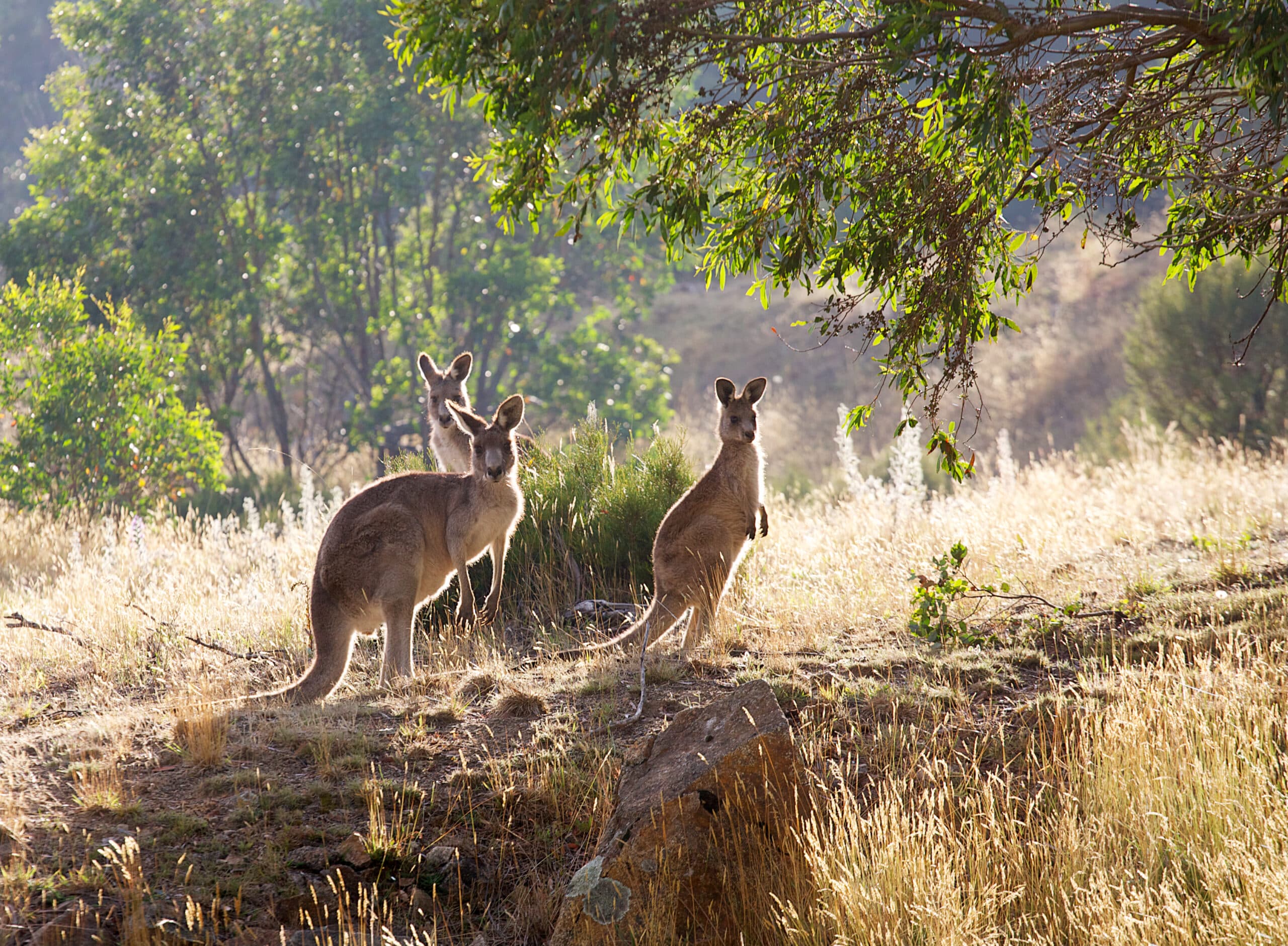Camping in Australia’s wilderness is an incredible way to connect with nature, but sharing the outdoors with wildlife comes with its challenges. From curious kangaroos to scavenging possums and even the occasional snake, keeping your campsite safe and wildlife-proof is essential for your safety and the wellbeing of the animals. Here’s how to make your campsite wildlife-proof and enjoy a safe outdoor adventure.
1. Choose A Wildlife-Friendly Campsite
Selecting the right location for your campsite can go a long way in minimising wildlife encounters.
What to Look For:
- Avoid Animal Trails: These are often used by wildlife for travel and grazing. Setting up nearby can lead to unwanted visits.
- Stay Away from Water Sources: Rivers, lakes, and waterholes are hotspots for animals, especially at dawn and dusk.
- Camp in Designated Areas: Many campsites are designed to minimise human-wildlife interactions, with clear boundaries and facilities.
Pro tip: Observe the area for signs of wildlife, such as tracks, droppings, or disturbed vegetation, before setting up camp.
2. Store Food Securely
Food is one of the main reasons wildlife may visit your campsite. Proper storage is crucial to avoid attracting animals.
Food Storage Tips:
- Use Airtight Containers: Store all food in sealed, odor-proof containers to prevent smells from attracting wildlife.
- Hang Food Bags: Suspend food bags at least 2 metres off the ground and 1 metre away from tree trunks.
- Avoid Leaving Food Out: Never leave food, cooking utensils, or scraps unattended.
Pro tip: Keep all food and rubbish in your vehicle overnight to eliminate smells and access.
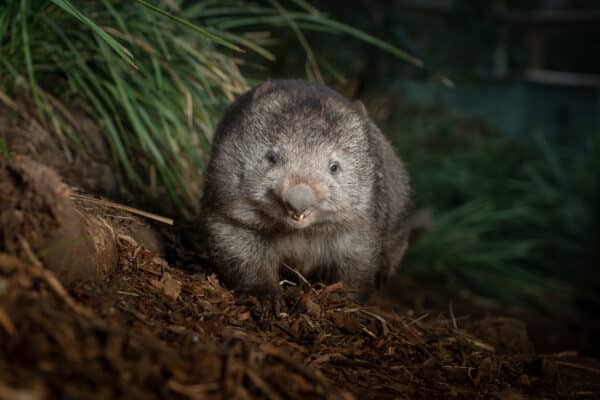
3. Dispose Of Waste Properly
Improperly disposed waste is a magnet for wildlife and can lead to animals becoming dependent on human food.
Waste Disposal Tips:
- Pack Out All Rubbish: Use heavy-duty, sealable bags to store your trash and take it with you when you leave.
- Bury Organic Waste Deeply: If allowed, bury food scraps at least 15 cm deep and far from your campsite.
- Burn Food Scraps (If Permitted): In some areas, burning scraps in a campfire can reduce waste and deter animals.
Pro tip: Use wildlife-proof bins or containers if provided at your campsite.
4. Keep Cooking Areas Clean
The scent of food and grease from cooking can linger long after your meal, drawing animals to your campsite.
How to Keep Cooking Areas Clean:
- Wash Up Immediately: Clean dishes, cookware, and utensils as soon as possible after eating.
- Dispose of Grease Safely: Avoid dumping grease on the ground; instead, store it in a container for disposal later.
- Store Cooking Gear Securely: Pack away all cooking equipment when not in use.
Pro tip: Avoid cooking strong-smelling foods like fish or bacon that are more likely to attract wildlife.
5. Secure Your Campsite At Night
Nighttime is when many animals are most active, making it important to secure your campsite before going to bed.
Nighttime Security Tips:
- Store All Attractants: Put away food, toiletries, and trash securely before sleeping.
- Close Your Tent Properly: Zip up your tent to prevent curious critters from sneaking in.
- Use Motion-Activated Lights: These can startle animals and discourage them from approaching.
Pro tip: Avoid storing food inside your tent, as it can attract animals looking for a snack.
6. Minimize Scent Trails
Wildlife is drawn to scents, so keeping smells to a minimum is an effective way to deter animals.
How to Minimize Scents:
- Avoid Scented Products: Skip strong-smelling soaps, deodorants, and perfumes.
- Double-Bag Rubbish: Seal trash in two bags to reduce odours.
- Clean Spills Immediately: Wipe up food or drink spills to prevent lingering scents.
Pro tip: Use biodegradable, unscented soap for cleaning yourself and your gear.
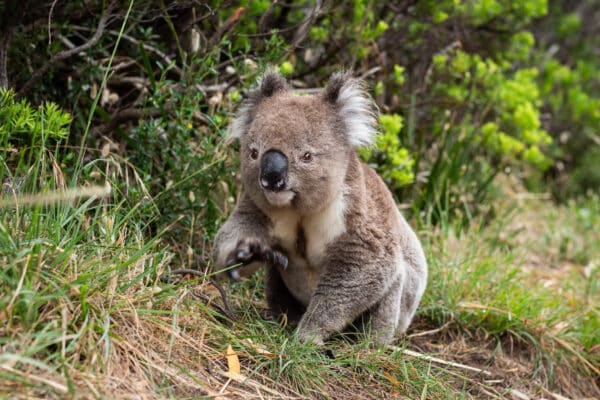
7. Be Aware Of Specific Wildlife Risks
Different animals pose different challenges, and knowing how to handle them is key to a wildlife-proof campsite.
Common Australian Wildlife and How to Deter Them:
- Kangaroos: Avoid feeding them—they can become aggressive. Keep food out of sight.
- Possums: Store food in secure containers, as possums are skilled at breaking into bags.
- Snakes: Keep your campsite tidy and free of debris where snakes might hide. Wear closed-toe shoes and use a torch at night.
- Dingoes: Particularly in areas like Fraser Island, never leave food unattended and secure rubbish tightly.
Pro tip: Learn about the local wildlife in the area you’re visiting to better prepare for specific risks.
8. Use Wildlife-Deterring Gear
A few simple items can help keep your campsite free from unwanted animal visitors.
Recommended Gear:
- Animal-Proof Containers: These are specially designed to prevent wildlife from accessing food or rubbish.
- Citronella Candles or Sprays: These can deter insects and some mammals.
- Ultrasonic Deterrents: Devices that emit sounds unpleasant to animals but inaudible to humans.
Pro tip: Hang small bells or cans around your campsite as an audible deterrent for larger animals.
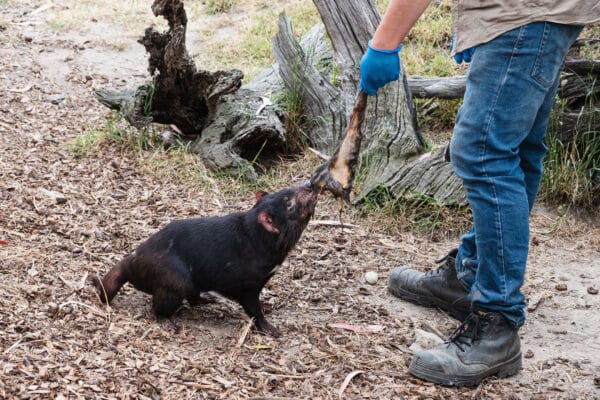
9. Respect Wildlife
Camping is about enjoying nature, not interfering with it. Respecting wildlife is crucial for your safety and theirs.
How to Practice Respectful Camping:
- Observe from a Distance: Avoid approaching or feeding wild animals.
- Follow Park Rules: Many parks have specific guidelines for managing wildlife encounters.
- Leave No Trace: Ensure your campsite is as clean as when you arrived.
Pro tip: If you encounter an animal, stay calm and give it space to move away.
10. Have an Emergency Plan
Even with the best precautions, unexpected wildlife encounters can happen. Being prepared ensures you’re ready for any situation.
Emergency Preparedness Tips:
- Carry a First Aid Kit: Include items for bites, stings, and scratches.
- Know Emergency Contacts: Familiarize yourself with local park rangers or wildlife services.
- Keep a Safe Distance: If an animal becomes aggressive, back away slowly without turning your back.
Pro tip: If camping in snake-prone areas, pack a snakebite kit and learn how to use it.
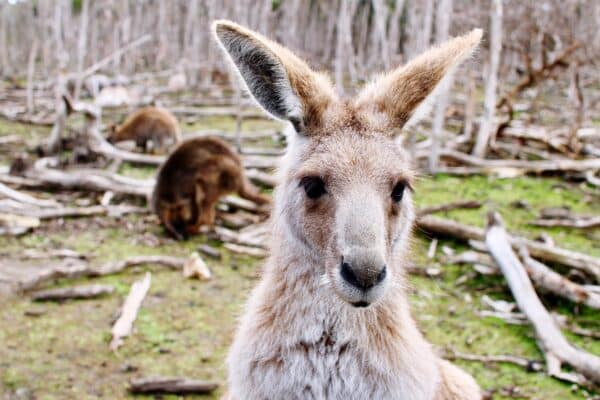
Making your campsite wildlife-proof is about balancing safety and respect for the animals that call the outdoors home. By securing your food, keeping your campsite clean, and understanding the habits of local wildlife, you can enjoy a peaceful and hassle-free camping experience. With the right preparation, you’ll protect yourself, your gear, and the amazing creatures that make camping in Australia so special.

